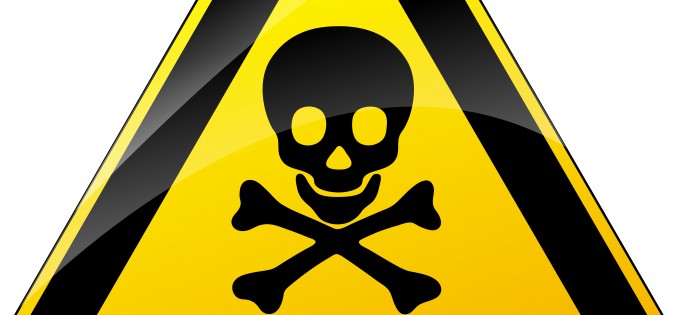
Toxins in our seafood – what you need to know to stay safe
I can be a skeptic about somethings and when it comes to seafood I’ve held the belief that farm-raised seafood was probably not a good choice. Why? Because I have little faith that for-profit farm fisheries have my health on their list of concerns. They are there to sell their products to anyone that will buy it and will probably do whatever they can get away with (legally and otherwise) to do so. Like I said, I can be a skeptic!
I recently felt vindicated for my choices when I learned about the amount of and the harmful effects of toxic chemicals (like PCB’s, dioxins, methyl-mercury) and antibiotics found in farm-raised seafood.
Here are some astonishing statistics about farmed salmon according to a 2003 study from the Environmental Working Group. Farm-raised salmon contains:
- 16x levels of dioxin-like PCB’s than wild salmon
- 4x more than beef
- 3.4x more than other types of seafood
Moreover, imported farmed-shrimp was found to contain rat and mice hair, feathers and pieces of insects according to a 2009 report from the non-profit Food & Water Watch organization called “Suspicious Shrimp.”
In case you aren’t sure why you should be concerned about PCB’s, Dioxins and Methyl-Mercury, let me explain what these are and how they can effect your health:
PCB’s: Polychlorinated Biphenyls
A family of over 200 chemicals generally found in things like electrical transformers and capacitors, old tv’s and refrigerators and gas pipelines. They were banned by the EPA in 1977 once the hazard to humans and wildlife was established. However as people throw away old appliances and old buildings are renovated, these products are ending up in our landfills where PCB’s leach-out and contaminate soil and ground water; they can also travel by air settling at the bottom of rivers, lakes and oceans poisoning the aquatic eco-system.
How PCB’s effect your health
- increased risk of cancers of brain, digestive system, liver, skin and lymphatic system
- linked to reproductive issues and endometriosis in women; low sperm count in men
- prenatal exposure has been linked to adverse neurological development and impaired immune response in fetuses and babies
- change impair bone density in men
Dioxins
Dioxins are a class of toxins similar in structure to PCB’s but more lethal — they’ve been called the “most potent carcinogenic known to man.” Dioxins are released into the environment as an “unintentional byproduct” of industrial activity related to incineration and fuel combustion; they can be formed naturally via forest fires and volcanic eruptions. They also travel through the air, landing on both land and water, contaminating our food supply. More than 90% of our exposure to dioxins come through the food we eat.
How dioxins effect your health:
- have ability to alter DNA and turn on genes associated with cancer
- Linked to endocrine disruption (thyroid, ovaries, testes, hypothalamus, pituitary gland and adrenal glands)
- breast cancer
- fatigue
- birth defects
- liver damage
- headaches
- immune suppression
- developmental issues in kids
Mercury & Methyl-mercury
As if Mercury wasn’t harmful enough; once it’s released to the environment and broken-down through bacterial digestion its turned into methyl-mercury which is far more toxic meaning that lower levels have a larger (negative) impact on our health. When measured in food, it’s methyl-mercury that’s being measured. Mercury makes it way to waterways via landfills, industrial waste and as a byproduct of manufacturing.
How mercury/methyl-mercury effects your health:
- memory loss
- insomnia
- headaches
- immune system damage
- vision problems
- tremors and tingling in extremities
- hair loss
- irritability, excitability
- fearfulness, anxiety
- restlessness
- depression
- Prenatal exposure: mental retardation, delayed development and other neurological developmental problems
By now you’re probably thinking you’ll never eat seafood again – despite their heart-healthy omega 3’s and lean source of protein. I know, I was beginning to feel the same way too — and this is even’t the whole story! But there is a small silver-lining in this story.,.
Here are 3 things you CAN do to keep yourself safe:
- Always choose wild-caught over farm-raised; when in doubt skip the seafood altogether
- Say no to sushi and choose seafood that are lower on the food chain like Alaskan Salmon (NOT Scottish nor Atlantic), Atlantic Herring, sardines and Arctic Char
- Pass on the imported seafood – over 80% of imported seafood is farmed; Read labels on frozen seafood, ask your fish monger about the origins and if they can’t answer or seem unsure, do without
To be clear, I am in no way saying that wild-caught seafood is 100% clean of these toxins because they aren’t. The state of our polluted oceans, rivers and lakes makes that almost impossible but they are safer than their farm-raised counterparts. The name of the toxin game is: avoidance, avoidance, avoidance, supplementation and cleansing according to Dr. Walter Crinnion a leader in the field of studying the harmful effects of environmental toxins on our health.
So tell me, what was your biggest “aha” moment in all of this? What changes do you plan to make? I’ll continue purchasing wild caught seafood and maybe adding in an extra “meatless” day into my meal planning each week!
I totally agree!. It’s why I rarely eat seafood. Most of the fish in stores are farm raised and would caught is so expensive. I also knew about the salmon and therefore don’t eat salmon anymore because the wild caught is not within my budget. It seems like it’s getting harder and harder to eat as healthy as we want.
Yes Leticia, it seems to be getting more difficult to find REALLY healthy, CLEAN food that’s affordable! I’m so lucky I have the Park Slope Food Co-Op, it makes buying organic AND wild caught fish more affordable. You should check it out when you’re ready – my offer still stands :).